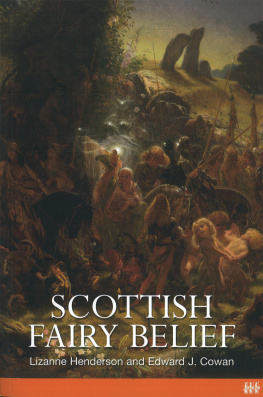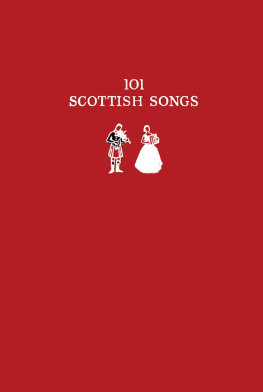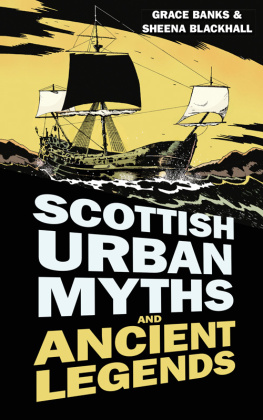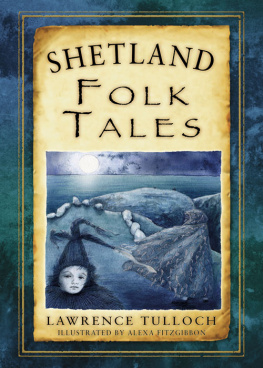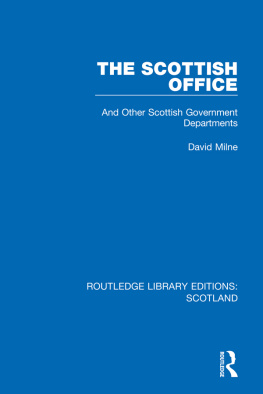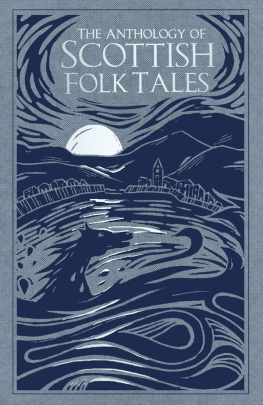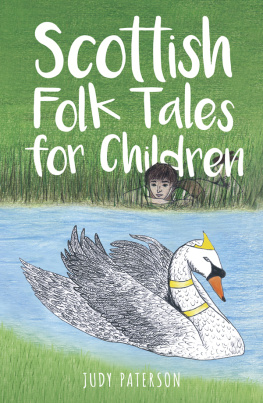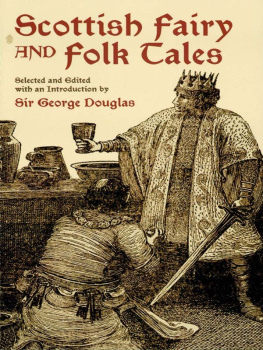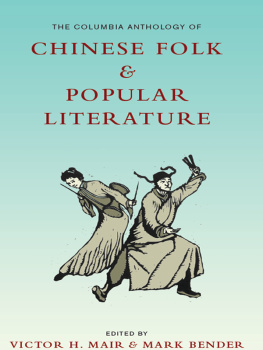ROUTLEDGE LIBRARY EDITIONS: FOLKLORE
Volume 13
SCOTTISH TRADITION
SCOTTISH TRADITION
A Collection of Scottish Folk Literature
EDITED BY
DAVID BUCHAN
First published in 1984
This edition first published in 2015
by Routledge
2 Park Square, Milton Park, Abingdon, Oxon, OX14 4RN
and by Routledge
711 Third Avenue, New York, NY 10017
Routledge is an imprint of the Taylor & Francis Group, an informa business
1984 selection and editorial matter David Buchan
All rights reserved. No part of this book may be reprinted or reproduced or utilised in any form or by any electronic, mechanical, or other means, now known or hereafter invented, including photocopying and recording, or in any information storage or retrieval system, without permission in writing from the publishers.
Trademark notice: Product or corporate names may be trademarks or registered trademarks, and are used only for identification and explanation without intent to infringe.
British Library Cataloguing in Publication Data
A catalogue record for this book is available from the British Library
ISBN: 978-1-138-84217-5 (Set)
eISBN: 978-1-315-72831-5 (Set)
ISBN: 978-1-138-84387-5 (Volume 13)
eISBN: 978-1-315-73079-0 (Volume 13)
Publishers Note
The publisher has gone to great lengths to ensure the quality of this reprint but points out that some imperfections in the original copies may be apparent.
Disclaimer
The publisher has made every effort to trace copyright holders and would welcome correspondence from those they have been unable to trace.
SCOTTISH TRADITION
A Collection of Scottish Folk Literature
Edited by
David Buchan
Professor of Folklore
Memorial University of Newfoundland
First published in 1984
by Routledge & Kegan Paul plc
39 Store Street, London WC1E 7DD, England
9 Park Street, Boston, Mass. 02108, USA
464 St Kilda Road, Melbourne,
Victoria, 3004, Australia and
Broadway House, Newtown Road,
Henley-on-Thames, Oxon RG9 1EN, England
Set in 10/12 pt VIP Bembo by
Inforum Ltd, Portsmouth
and printed in Great Britain by
T.J. Press (Padstow) Ltd,
Padstow, Cornwall
Selection and editorial matter David Buchan 1984
No part of this book may be reproduced in
any form without permission from the publisher,
except for the quotation of brief
passages in criticism
Library of Congress Cataloging in Publication Data
Scottish tradition.
Bibliography: p.
Includes indexes.
1. Folk literature, Scottish. 2. Folk literature, ScottishHistory and criticism. I. Buchan, David, 1939
GR144.S37 1984 398.209411 8313754
British Library CIP available
ISBN 0-7100-9531-7
CONTENTS
INTRODUCTION
The term folk literature poses certain problems, largely because of this word folk. In popular usage the word tends to be applied to anything old, or earthy or couthy or even, in the Scottish context, vernacular. This batch of connotations casts a fine haze of imprecision over any attempt to employ it in a compound with pretensions to scholarly exactitude. Here, however, it is used in a precise sense as an adjective denoting of traditional culture. Customarily one distinguishes three segments along the cultural spectrum: high culture, popular culture, and folk culture, three overlapping but distinct areas. Of these, folk or traditional culture is the culture maintained and transmitted by word of mouth and by customary practice rather than by written or printed document. Folk literature, therefore, is the literature of traditional culture, that is, the literature perhaps created by but certainly transmitted by word of mouth rather than written or printed document; it is the literature of tradition as distinct from the literature of print. (To differentiate between the two is, of course, in no way to ignore their various interrelations.)
Tradition, however, has two stages, what one might call the preliterate and the postliterate or the preindustrial and the post-industrial. In the first stage, the time of general nonliteracy before the Industrial Revolution, word of mouth tradition pervaded the life of all the people who could not read and write: it was, in a quite encompassing sense, their means of both instruction and delight. In the second stage, the time of general literacy after the Industrial Revolution, word of mouth tradition had many of its functions gradually taken over by print, writing and official education, but it continued adaptively within its contracted range, retaining older material and creating new, and becoming increasingly the carrier of unofficial culture. Earlier antiquarians tended to search exclusively for relics of the preliterate stage as evidence of folk tradition, but modern folklorists take both stages as their province, considering both historical and contemporary phenomena or, in the current terminology, adopting both diachronic and synchronic perspectives. Folk literature, then, consists of the literary and linguistic products of both preliterate and postliterate tradition.
Folk literature, it is somewhat startling to realize, has been the literature of the bulk of the Scottish people. In standard usage the term literature means the literature of high culture, but that was the literature of only a relatively small proportion of the population before the days of general literacy, a proportion made up of those who not only could read but also had both access to and interest in the material. For most of the population the literature was that of oral tradition. In Scotland, as in Europe generally, mass literacy came in the wake of the Industrial and Agrarian Revolutions,1 and changing conditions exposed people to other kinds of literature and new forms of social activity, which both diminished folk literatures importance and altered its nature, but the old patterns of behaviour persisted, adapted to the new situation. As society changed, so did tradition and its literature. It was only after widespread education, in the nineteenth century, that there appeared many local books written by old residenters about their communities and districts, and often expressly designed to record a past or passing way of life, which give some indication of the patterns of behaviour which fostered the perpetuation of folk literature. Here is a scatter of accounts, all from the nineteenth century, which indicate the prevalence and sketch in some of the contexts of folk literature:
In winter, too, we beguiled the long evenings with story-telling, ballad-singing, tales of bogles and witches (in which all devoutly believed); and to these the wandering beggar and the pedlar, always welcome guests, added other varieties of entertainment.2
In the long winter evenings in particular, when the whole household was assembled round the ingle-cheek, the song was very frequent: the young men, as well as the young maids, gave it alternately. They had sometimes a fiddle, but there was no dancing; that did not consist with the tasks of the maids, or the general thrift of the establishment, though they all liked to hear a spring. The herd-boy, too, took this opportune time, in the winter evenings, of perfecting himself in his whistle. The other lads, in the interim, mended their own shoes, or the shoes of the maids. At other times they played at games of


